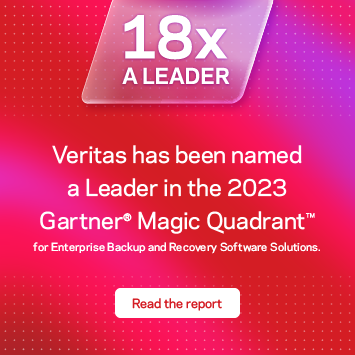- VOX
- Technical Blogs
- Enterprise Data Services Community Blog
- Court Approval of Scope and Methods for eDiscovery...
Court Approval of Scope and Methods for eDiscovery helping us achieve Proportional Preservation through changes in FRCP 26
- Subscribe to RSS Feed
- Mark as New
- Mark as Read
- Bookmark
- Subscribe
- Printer Friendly Page
- Report Inappropriate Content
I was fortunate enough this week to have Symantec send me to the 11thAnnual Superconference in Chicago at the Fairmont. All sessions I attended were useful, but one of most important was the Judicial Panel on eDiscovery. The Judges were: Flynn, Francis, Nolan and Waxse with Patrick Oot of the SEC as the moderator. It is always beneficial to get into the minds of the judges who lead in eDiscovery. It is especially important to me because many of our Symantec customers ask when purchasing or deploying our eDiscovery suite, “Does this software have court approval?”
The quick answer to that question is “No,” because in general, courts are not in the business of approving technology. The other way to answer the question is, “Yes,” because our products have never been disapproved either. Judges prefer that parties reach agreement themselves on scope, search terms, formats and search methodologies. If forced to make a decision, they will do so, but as a litigating party, do you really want to leave these issues up to the judge? Competent litigators are dealing with search technology and eDiscovery software on a daily basis in this day and age and have a different level of exposure to the technology than the judges do. In-house counsel know their businesses and litigation workflows intimately, why leave these decisions to someone else?
Please be proactive and decisive about your discovery plan and reach an agreement with the opposing counsel that can help you get to the merits of the case. If questioned, or if any other technical challenge arises, you will have demonstrated an effort to cooperate and to reach an agreement, which is what these judges are saying they want.
Technology is a topic all of the judges on this particular panel were excited about. I think judges are hungry for more education about how different technology works, but I do not think they will ever advocate for one particular tool or software. Judge Francis in particular indicated that he had never had a dispute before him regarding the functionality or methodology of a technology. I wish I could bring Judge Francis to meetings with me to assuage customer concern.
Along the same lines as the court approval question regarding our technology, I was very encouraged by an important potential innovation that Judge Waxse introduced. I was encouraged because one other common question I get when discussing archiving and preservation with customers is, “When my duty to preserve kicks in, and I need to issue litigation hold, how can I do that and can I amend the scope as I go?” The question is indicative of the fear of under-preserving, mixed with the desire not to review millions of unnecessary documents due to over-preservation.
In customer meetings, we answer the technology functionality in relation to the legal needs by explaining that deployment of litigation hold is flexible and that the archive enables you to preserve pursuant to any scope parameters you select.
Symantec’s technology enables preservation and litigation hold, but parties are still unsure of what that scope should be! I cannot answer for customers what that scope should be in any given piece of litigation, neither can the software, but soon there may be a forum where litigants can feel safe about this issue.
Judge Waxse mentioned potential talks surrounding Rule 26 (the Meet and Confer) to be amended to allow for parties to get agreement and court approval on the scope of preservation prior to an actual case being filed. The logistics of changing the Federal Rules Of Civil Procedure were addressed as this would take an Act of Congress, because the Federal Rules only apply after a suit is filed. Just imagine what this could do for practitioners and in-house counsel that struggle with the ever present issue of the scope of preservation in their matters.
In a perfect world, I would construct this prelitigation forum for agreement on scope of preservation to also encompass agreement on technology and search methodology as well. I think it would be preferable to have scope and technology dealt with upfront, so the case can move forward on its merits. This would allow proportional preservation to occur, in contract with universal preservation out of fear, which is very expensive and almost always unnecessary.
If litigants could feel comfortable with preservation and scope as well as the technology they are using because both have been court approved prior to filing, we can get back to practicing law instead of living in expensive fear about both issues. I don’t think the technology piece is as close to approval as scope, but if parties start bringing those issues to the court and are agreeing, why wouldn’t the court approve?
You must be a registered user to add a comment. If you've already registered, sign in. Otherwise, register and sign in.

